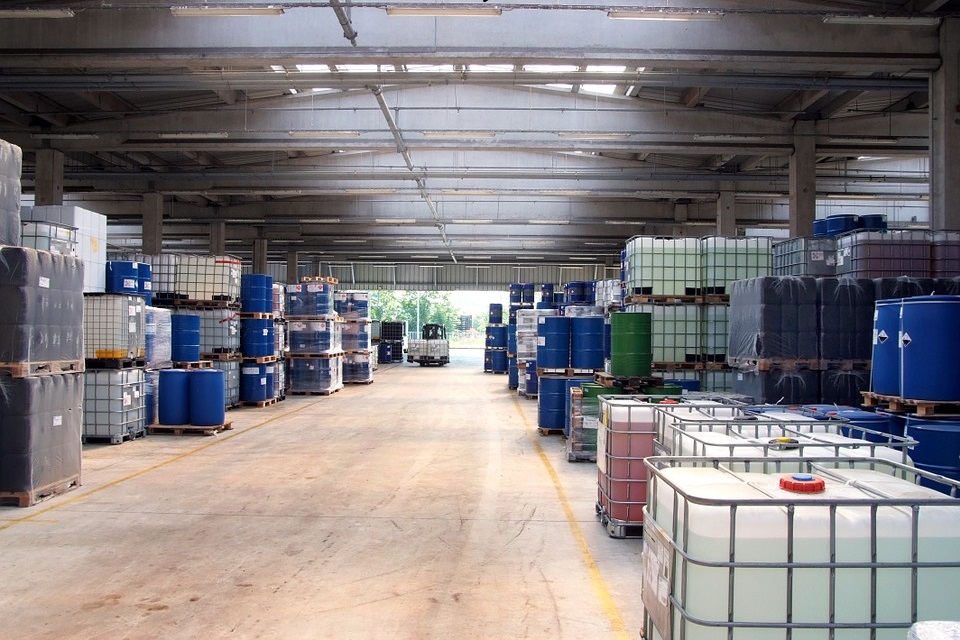Key Takeaways:
- Chemical wholesalers are essential for the efficiency and reliability of global supply chains, ensuring timely product delivery.
- Adherence to safety, regulatory compliance, and implementing sustainability practices are pillars of the chemical distribution industry.
- Technological innovation is fundamental to the modernization and sustainability of chemical supply chains.
- Resilience and strategic planning are crucial to navigating the complex global logistics and market trends in chemical distribution.
Table of Contents
Introduction To Chemical Wholesalers & Supply Chain Management
Within the intricate web of activities that constitute modern supply chains, chemical wholesalers serve a pivotal role. They ensure that raw materials and processed substances reach their destinations—in the right quantities, at the right time, and in the proper condition. Responsible for creating bridges between chemical manufacturers and diverse industry sectors such as agriculture, pharmaceuticals, and manufacturing, a reputable chemical wholesaler underpins the seamless delivery of a vast array of products we often take for granted. Their expertise in handling the procurement, storage, and distribution of chemicals is a lynchpin that sustains the production lines of industries worldwide.
The complexities involved in managing chemical supply chains are enormous. Manufacturers must rely on wholesalers to have intricate knowledge of logistics, material handling, and the regional intricacies that might affect the delivery of chemicals. Due to the sensitive nature of these materials, chemical wholesalers must implement rigorous measures to ensure the safe and efficient movement of goods. Their role is not merely transactional; it’s critical to the integrity and sustenance of the supply chains they manage.
The Process Of Chemical Distribution & Logistics
Efficient logistics are crucial in chemical distribution, primarily for wholesalers managing complex global networks. To ensure smooth operations, they must streamline warehousing, transportation, and inventory management. Given the challenges of handling hazardous substances, the industry requires innovative logistics solutions tailored to chemical transportation and storage needs. This involves maintaining proper storage conditions to prevent reactions and implementing reliable transport methods to securely move goods, including substances like KOH, without compromising safety.
In the quest for logistical efficiency, each stakeholder along the supply chain must collaborate closely. From when a chemical is produced until its end-user, competent wholesalers orchestrate seamless transactions and hand-offs, acting as the fulcrum for this continuous movement.
Regulatory Compliance & Safety In Chemical Wholesaling
Safety and compliance are non-negotiable within the chemical wholesaling industry. Handling chemicals requires adherence to a complex set of regulations that ensure the safety of the environment, employees, and end-users. This is a realm where cutting corners is not just unethical; it’s illegal. Regulatory bodies set guidelines governing chemical distribution, from proper labeling and storage to transportation and disposal. The objective is to reduce the risk of accidents, contamination, and environmental harm.
Importance of Advanced Safety Measures in Chemical Manufacturing offers a detailed examination of the extensive measures wholesalers must embrace to maintain safety and compliance. Implementing these measures ensures a commitment to responsible distribution and reinforces public trust in the chemical industry.
Technology & Innovation In Chemical Distribution
As with many other industries, technology has revolutionized chemical distribution. Modern wholesalers deploy sophisticated software to track inventory levels, manage customer orders, and ensure timely deliveries. Furthermore, the advent of technologies such as the Internet of Things (IoT) and Artificial Intelligence (AI) is set to bring even greater control and understanding of distribution networks, enhance predictive logistics, and provide deeper insights into supply chain operations.
Modern technology improves chemical distribution’s dependability and efficiency while also being a significant factor in environmental sustainability and safety. Integrating such technologies allows wholesalers to minimize errors, reduce waste, and better manage hazardous materials throughout their lifecycle. The research article Embracing Technology for Efficient Chemical Distribution discusses the impacts and benefits of leveraging these technological advancements within the sector.
The Environmental Impact Of Chemical Distribution
In an era of increased environmental consciousness, chemical wholesalers must recognize the ecological aspects of their operations. The industry is actively reducing its carbon footprint by adopting more energy-efficient transportation methods, exploring bio-based raw material options, and implementing recycling and waste reduction strategies. These efforts are spearheaded by recognizing that a commitment to sustainability is ethical and increasingly a business imperative as customers and governments demand greener practices.
The Economic Importance Of Chemical Wholesalers
Chemical wholesalers’ economic significance stems from their integral role in the value chain facilitating trade and commerce across various sectors. Businesses can produce goods and services that drive economic activity by serving as the conduit through which chemicals are distributed. The industry’s influence extends beyond immediate economic outputs, including job creation, the stimulation of related companies, and substantive contributions to the GDP of many countries.
Global Logistics: Managing International Chemical Supply Chains
Chemical wholesaling on a global scale adds another layer of complexity, requiring knowledge and expertise in international trade regulations, customs processes, and cross-border transportation challenges. The adept wholesaler’s ability to manage these factors effectively separates them from the pack. Flexibility and strategic planning are paramount in dealing with the unpredictable nature of international logistics, ensuring that the supply chain remains robust and responsive despite global uncertainties.
The Impact Of Market Trends On Chemical Wholesalers
Like other industries, the chemical distribution industry is subject to market forces’ ups and downs. External influences such as raw material availability, changes in energy prices, and evolving environmental regulations can profoundly impact wholesalers’ operations. Close monitoring of these trends is vital for strategic decision-making, enabling wholesalers to adjust their business models to efficiently match the current market climate.
Building Resilience In The Supply Chain
Resilience is a theme that resonates deeply within the arena of chemical distribution. Today’s wholesalers are focused not only on optimizing current operations but also on preparing for potential disruptions. This preparation involves creating contingency plans, diversifying supply sources, and developing flexible logistical capabilities. Such strategic foresight enables the chemical industry to withstand and quickly recover from disruptions, natural disasters, economic shifts, or geopolitical upheavals.
The Future Of Chemical Wholesaling
Looking to the future, chemical wholesaling is anticipated to evolve further in response to advancing technology, the drive toward sustainability, and the changing landscape of global markets. As new markets in developing regions grow and sustainability becomes an ever-more-pressing global issue, wholesalers who can skillfully navigate these changes will likely emerge as leaders in the field. Constant innovation, adaptability, and strict adherence to safety and regulatory standards will be the hallmarks of the wholesaler of the future.




